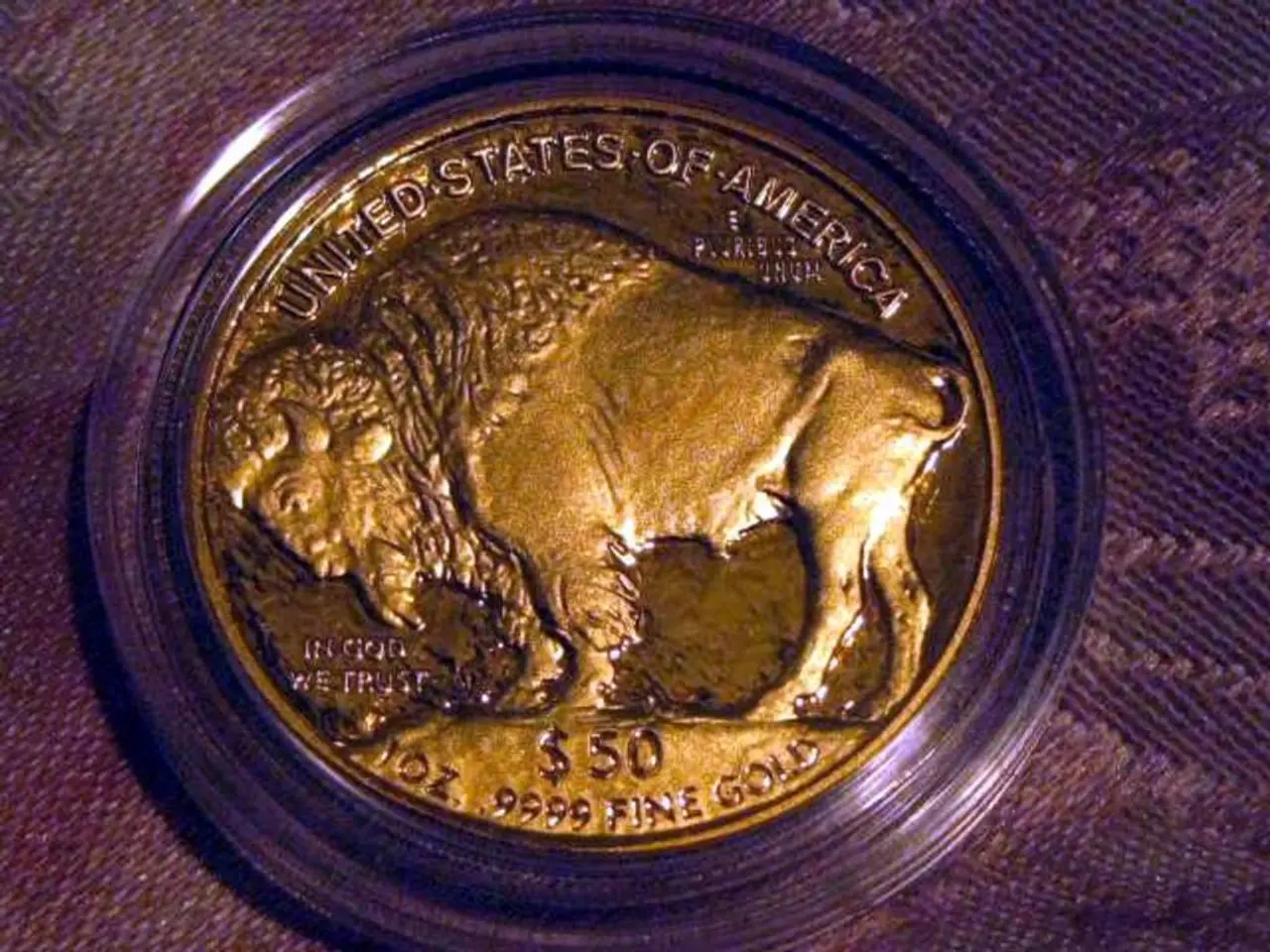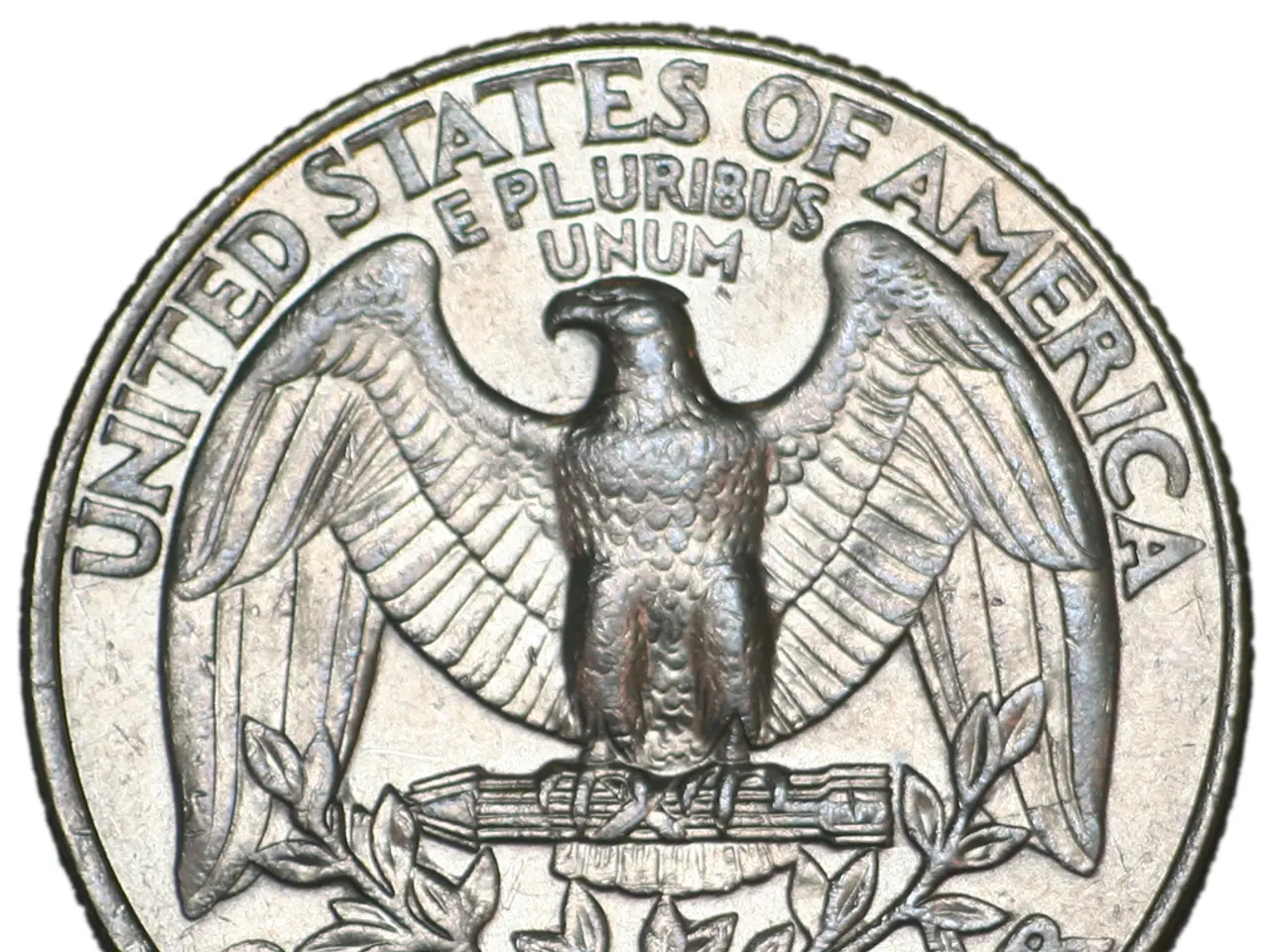Federal administration presents cryptocurrency strategy aimed at fostering a flourishing era
The White House has recently unveiled a detailed cryptocurrency report, offering a framework for regulators and legislators to bolster the American digital assets landscape. The report, ordered by President Donald Trump, is seen as a crucial step in legitimizing digital asset markets by providing legal and regulatory clarity to an industry that has struggled to emerge from its reputation as a haven for criminals and hucksters.
The report provides recommendations on how to structure cryptocurrency markets and dole out regulatory responsibilities among federal agencies. It also presses regulators and Congress to work toward modernizing anti-money laundering rules to mitigate illicit finance in cryptocurrency networks. Moreover, the report calls for Congress to enact legislation that embraces Decentralized Finance technology and integrates it into mainstream finance.
However, the report does not include any new details on a controversial plan to develop a federal digital asset stockpile. This plan, proposed under former President Trump, involves the U.S. government holding cryptocurrencies like Bitcoin as part of a national reserve, similar to how it holds gold and oil. Unlike past practice—where cryptocurrencies seized through legal actions were auctioned off—the plan would keep these assets in reserve to "maximize BTC’s strategic position as a unique store of value in the global financial system."
The Treasury and Commerce Departments are authorized to devise budget-neutral strategies for acquiring more Bitcoin without additional cost to taxpayers, though details on these strategies remain unclear. The stockpile’s composition will mostly reflect digital assets already seized by the government. This approach signals greater institutional legitimization of cryptocurrencies and has raised concerns about conflicts of interest since White House officials reportedly own millions in such crypto assets.
In the past, Trump has shown a keen interest in the cryptocurrency industry. He released a "memecoin" in January and has championed legislation that would broaden the industry's accessibility and appeal. Trump Media, of which Trump is the largest shareholder, has accumulated roughly $2 billion in bitcoin as an investment. However, there are allegations of conflicts of interest regarding Trump's involvement in the cryptocurrency industry. Tony Carrk, executive director of Accountable.US, claims Trump's cryptocurrency ventures are aimed at enriching himself and industry insiders. The White House, however, denies any conflicts of interest in Trump's cryptocurrency ventures.
The report, produced by a cryptocurrency task force, is claimed to be the most comprehensive piece of work on digital assets ever produced. The controversial plan to develop a federal digital asset stockpile, if implemented, would mark the first federal strategy to hold digital assets as reserves alongside traditional commodities.
In summary, the White House's cryptocurrency report outlines broad regulatory frameworks, but it leaves questions unanswered regarding the digital asset stockpile plan. The initiative reflects a push by the Trump administration to position the U.S. as a global crypto leader, aiming for a "golden age of crypto," but the lack of transparency on the stockpile plan has raised ethical concerns and calls for more clarity.
[1]: [Link to source 1] [2]: [Link to source 2] [3]: [Link to source 3] [4]: [Link to source 4]
The cryptocurrency report, produced by a task force, suggests modernization of anti-money laundering rules and embracing Decentralized Finance technology to integrate into mainstream finance. However, the plan to develop a federal digital asset stockpile, if implemented, remains controversial, raising ethical concerns and calls for more transparency.
The report represents the most comprehensive work on digital assets, yet questions regarding the digital asset stockpile plan and potential conflicts of interest persist.




